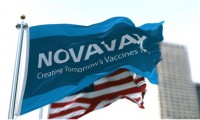-
Combination Vaccines Are Coming for Respiratory Diseases
- Source: drugdu
- 110
- November 4, 2023
-
Novavax’s XBB.1.5-adapted COVID-19 vaccine receives EC approval
- Source: drugdu
- 211
- November 3, 2023
-
AI may help identify potential gonorrhea vaccine proteins
- Source: drugdu
- 181
- November 2, 2023
-
Ultimovacs Rebounds on New Universal Cancer Vaccine Data for Mesothelioma
- Source: drugdu
- 105
- October 20, 2023
-
Newly discovered synthetic adjuvant materials could make vaccines more accessible, sustainable
- Source: drugdu
- 113
- October 16, 2023
-
FDA quells Care Access misconduct concern in Pfizer’s Lyme disease vaccine trial
- Source: drugdu
- 206
- October 16, 2023
-
New University of Bristol study to aid strep A vaccine development
- Source: drugdu
- 127
- October 12, 2023
-
Gates Foundation announces $40m for mRNA vaccine platform
- Source: drugdu
- 218
- October 11, 2023
-
WHO experts recommend the use of Takeda’s dengue vaccine QDENGA
- Source: drugdu
- 118
- October 10, 2023
-
Evaxion partners with Afrigen Biologics to develop mRNA gonorrhea vaccine
- Source: drugdu
- 103
- September 30, 2023
your submission has already been received.
OK
Subscribe
Please enter a valid Email address!
Submit
The most relevant industry news & insight will be sent to you every two weeks.













